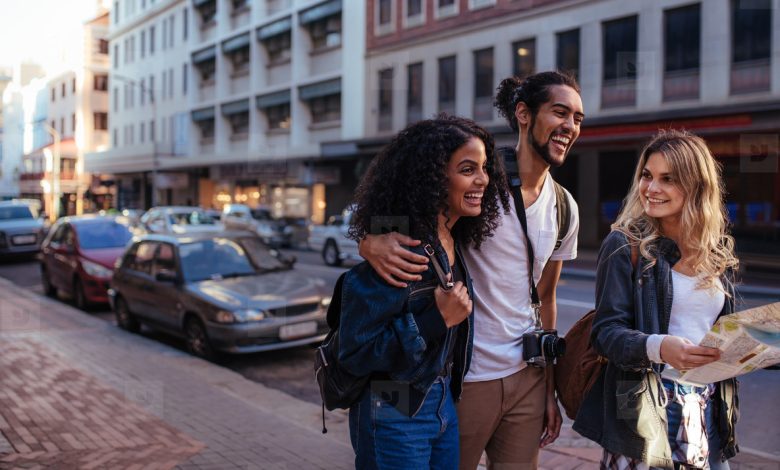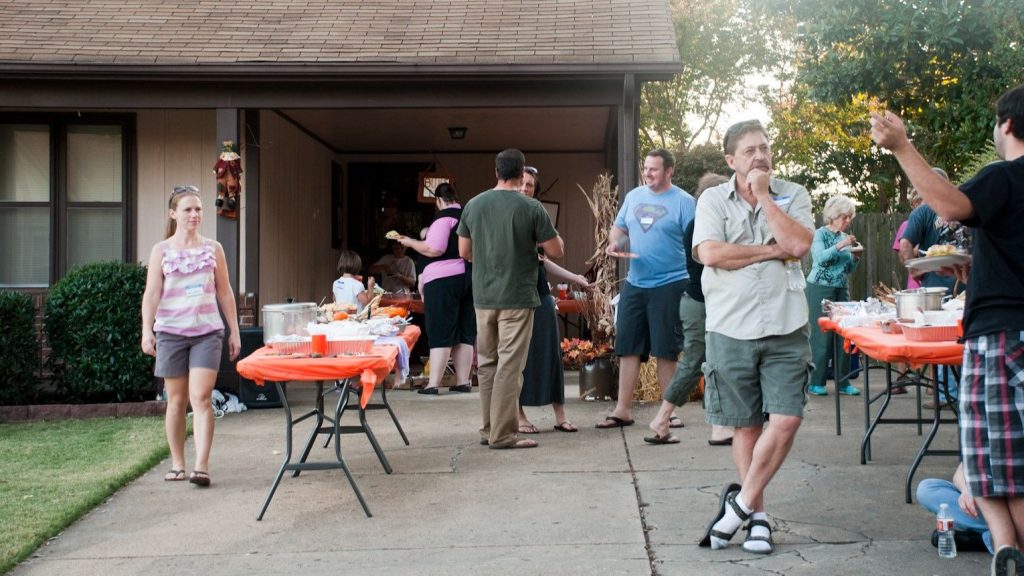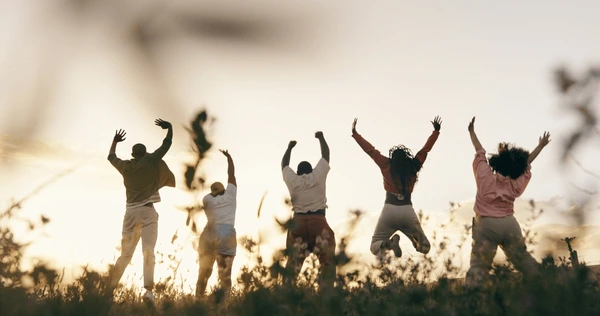How to Make Friends as an Adult in a New City

How to make friends as an adult in a new city is a challenge many people face. Moving for work, school, or a fresh start brings excitement—but also loneliness and the need to build new connections from scratch. Unlike childhood, adult friendships don’t happen automatically. This guide explains why making friends as an adult can be hard, shares real case studies, and gives you step-by-step strategies, pros and cons, and answers to common questions.
Introduction: Why Making Friends as an Adult Is Hard
As kids, we made friends at school or in the neighborhood. As adults, busy schedules, work, and family can make it much harder. In a new city, you may not know anyone, and social circles can feel closed. But with the right mindset and strategies, you can build a rich, supportive network from scratch.

Key Features of Adult Friendships
- Intentional: Adults have to put in effort to meet and keep friends.
- Shared interests: Friendships often form around hobbies, work, or values.
- Flexible: Friends may be from different backgrounds, ages, or careers.
- Supportive: Good friends help with stress, loneliness, and life changes.
- Reciprocal: Both sides need to give and take for the friendship to last.
Why Moving Makes Friendship Tougher
- No built-in community: You don’t have classmates or childhood neighbors.
- Busy lives: Most adults juggle work, family, and other commitments.
- Cultural differences: Moving to a new country or city may mean learning new social norms.
- Social anxiety: Fear of rejection or awkwardness can hold you back.

Where to Meet New People in a New City
How to Make Friends as an Adult in a New City—Best Places to Start
- Work or school: Join team projects, attend after-work events, or eat lunch with colleagues.
- Clubs and classes: Try sports teams, book clubs, cooking classes, or language lessons.
- Community events: Attend festivals, markets, or volunteer days.
- Religious or spiritual groups: Churches, mosques, or meditation centers often welcome newcomers.
- Gyms and fitness studios: Group classes and training sessions are social by nature.
- Online platforms: Apps like Meetup, Bumble BFF, or Facebook Groups connect people with shared interests.
- Coworking spaces: Great for freelancers or remote workers to meet others.
- Neighborhood gatherings: Block parties, clean-up days, or local committees.

How to Start Conversations and Build Rapport
How to Make Friends as an Adult in a New City—Breaking the Ice
- Ask open-ended questions: “What brought you to this city?” or “How do you spend your weekends?”
- Share a little about yourself: Be open, but don’t overshare right away.
- Find common ground: Look for shared hobbies, backgrounds, or goals.
- Be a good listener: Show interest in others’ stories.
- Follow up: Suggest meeting again, or send a message after your first chat.
- Smile and make eye contact: Friendly body language goes a long way.

How to Turn Acquaintances into Real Friends
How to Make Friends as an Adult in a New City—Deepening Connections
- Be consistent: Regular contact builds trust—invite people to coffee, walks, or events.
- Share experiences: Attend workshops, explore the city, or try new activities together.
- Offer help: Small favors or support show you care.
- Be patient: Friendships take time to grow—don’t rush.
- Open up gradually: Share more about your life as trust builds.
- Celebrate milestones: Remember birthdays, achievements, or tough times.

How to Make Friends as an Adult in a New City Table
| Step | Example Action | Why It Works |
|---|---|---|
| Join a group | Book club, sports team, class | Built-in social opportunities |
| Attend local events | Farmers’ market, art fair, festival | Meet people with shared interests |
| Use friend apps | Meetup, Bumble BFF, Facebook Groups | Connects you to locals |
| Volunteer | Food bank, animal shelter, clean-up | Shared purpose builds bonds |
| Reach out at work | Lunch invites, after-work drinks | Turns colleagues into friends |
| Follow up | Text to meet again, share an article | Keeps momentum going |
The Psychology of Adult Friendships: Why It’s Different
How to Make Friends as an Adult in a New City—Understanding the Mindset
Why Adult Friendships Feel Harder
- Fewer natural opportunities: Unlike school or college, adults rarely have built-in social groups.
- Higher stakes: Adults may fear rejection more, making them less likely to reach out.
- Busy lives: Work, family, and personal commitments limit free time.
- Changing priorities: Values, interests, and lifestyles evolve, so old friendship patterns may not fit new realities.
The Science of Connection
- Loneliness epidemic: Many adults report feeling lonely after moving, but intentional effort can reverse this trend.
- Social health: Research shows strong friendships boost happiness, reduce stress, and even improve physical health.

“Making friends as an adult is about quality, not quantity. Even a few close connections can transform your experience in a new city.”
— Dr. Maria Gomez, Social Psychologist
The Role of Technology in Making Friends
How to Make Friends as an Adult in a New City—Digital Tools
Friend-Making Apps and Platforms
- Meetup: Find groups for hiking, books, tech, or any interest.
- Bumble BFF: Connects people looking for platonic friendships.
- Facebook Groups: Local community, hobby, and expat groups are active in most cities.
- Eventbrite: Discover workshops, talks, and social events.
Social Media Best Practices
- Be genuine: Share your interests and join discussions, but avoid oversharing.
- Use location tags: Find people and events in your new city.
- Safety first: Always meet new contacts in public places.
Networking and Professional Friendships
How to Make Friends as an Adult in a New City—Networking
- Industry events: Attend conferences, seminars, or local business meetups.
- Coworking spaces: Join community events or coffee breaks.
- Mentorship: Seek out or become a mentor; shared growth builds strong bonds.
- Alumni networks: University or professional associations often host local gatherings.
Visual: Adult Friendship Networking Table
| Method | Where to Find It | Friendship Benefit |
|---|---|---|
| Coworking events | Shared offices, business hubs | Professional and social mix |
| Alumni meetups | University clubs, LinkedIn | Shared background, easy rapport |
| Industry seminars | Eventbrite, trade groups | Common interests, career help |
| Mentorship | Company programs, online | Deep, supportive connections |
Cultural Adaptation: Making Friends Across Borders
How to Make Friends as an Adult in a New City—Cross-Cultural Tips
- Learn local customs: Greetings, small talk, and social etiquette vary.
- Language skills: Even basic phrases help break the ice and show respect.
- Celebrate diversity: Attend local holidays, festivals, or food events.
- Ask questions: People appreciate genuine curiosity about their culture.
“In a new city, openness is your superpower. People respond to curiosity, respect, and a willingness to learn.”
— Samuel Adeyemi, Expat Community Leader
Advanced Strategies: Deepening and Sustaining Friendships
How to Make Friends as an Adult in a New City—Long-Term Success
- Schedule regular meetups: Consistency builds trust and routine.
- Share your goals: Invite friends to join you in new experiences or challenges.
- Be vulnerable: Opening up about challenges helps deepen connections.
- Support others: Celebrate successes and offer help during tough times.
- Stay in touch: Use reminders, group chats, or calendar invites to maintain contact.
Visual: Friendship Maintenance Table
| Action | Why It Works | Example |
|---|---|---|
| Monthly dinners | Builds routine, shared memories | Try a new restaurant each time |
| Group chats | Easy updates, event planning | Share photos, plan outings |
| Shared hobbies | Deepens bonds, regular contact | Join a sports league together |
| Celebrate milestones | Shows care, builds closeness | Birthdays, promotions, holidays |
Expert Quotes
“Friendship is an investment. The more you put in—time, openness, support—the more you get back.”
— Dr. Ifeoma Okeke, Relationship Coach
Looking Ahead: The Future of Adult Friendships
- Hybrid connections: More friendships start online but deepen offline.
- Community focus: Cities are building more public spaces and events to foster connection.
- Mental health awareness: Recognizing the importance of friendship for well-being is leading to more support groups and social initiatives.
If you want even more—such as a printable friendship-building checklist, interviews with expats, or a region-specific guide—just let me know your focus!
The Emotional Journey: Navigating Loneliness and Building Confidence
How to Make Friends as an Adult in a New City—Overcoming Emotional Barriers
Recognizing and Accepting Loneliness
- Normalizing the feeling: Almost everyone feels lonely after moving; it’s a natural part of transition.
- Self-compassion: Don’t blame yourself—making friends takes time and effort.
- Growth mindset: See each new interaction as practice, not a test.
Building Confidence
- Small wins: Start with brief chats at the coffee shop or gym.
- Positive self-talk: Remind yourself of past successes making friends.
- Celebrate progress: Every new contact or event attended is a step forward.
“Loneliness is a signal, not a sentence. It’s your mind’s way of nudging you to reach out and connect.”
— Dr. Ana Gutierrez, Clinical Psychologist
The Power of Shared Experiences
How to Make Friends as an Adult in a New City—Bonding Through Activities
Why Activities Work
- Natural conversation: Doing something together (sports, cooking, volunteering) makes talking easier and less awkward.
- Shared memories: Experiences create inside jokes and stories that deepen friendships.
- Regularity: Clubs, classes, and teams offer built-in opportunities for repeated contact.
Visual: Activity-Based Friendship Table
| Activity Type | Where to Find It | Friendship Benefit |
|---|---|---|
| Sports leagues | Local gyms, Meetup, parks | Teamwork, regular meetings |
| Art/music classes | Community centers, studios | Creativity, shared learning |
| Volunteering | NGOs, shelters, events | Shared values, purpose |
| Food events | Cooking classes, tastings | Fun, easy conversation |
Navigating Setbacks and Rejection
How to Make Friends as an Adult in a New City—Resilience Skills
- Not every attempt works: Some people won’t click with you—and that’s okay.
- Don’t take it personally: Others may be busy, shy, or in their own transition.
- Keep trying: The more you reach out, the more likely you’ll find your people.
- Reflect and adjust: If something feels off, try a new group or approach.

Friendship and Well-being: The Science
How to Make Friends as an Adult in a New City—Health Benefits
- Lower stress: Friends buffer against anxiety and depression.
- Better physical health: Social connections are linked to lower blood pressure and longer life.
- Greater life satisfaction: People with strong friendships report higher happiness and fulfillment.
“Friendship is not a luxury—it’s a health essential. Investing in relationships is investing in your well-being.”
— Dr. Samuel Okoro, Public Health Researcher
Friendship Across Cultures: Embracing Diversity
How to Make Friends as an Adult in a New City—Global Connections
- Learn from others: Diverse friendships broaden your perspective and enrich your experience.
- Share your culture: Host a meal or event featuring your traditions.
- Be curious: Ask about local customs, holidays, and favorite places.
- Language exchange: Offer to teach your language or learn a new one together.
Case Studies: Real Stories of Making Friends
Case Study 1: The Remote Worker in Lagos
Chinedu moved for a tech job and joined a coworking space. He made friends by attending networking nights and helping organize a coding club.
Case Study 2: The Graduate Student in Buenos Aires
Lucia joined a Spanish class and a hiking group. She met people from around the world and found a close friend through shared weekend trips.
Case Study 3: The Single Parent in London
Amina attended school events and joined a local parent WhatsApp group. She built friendships by arranging playdates and helping with school fundraisers.
Case Study 4: The Artist in São Paulo
Carlos volunteered at a community art project and started hosting weekly drawing meetups. He found friends who shared his creative interests.
Case Study 5: The Newlywed in New York
Sarah and her husband moved for his job. She joined a cooking class and a neighborhood book club, making friends who helped her feel at home.
Case Study 6: The Expat in Tokyo
David used Meetup to find an English-speaking hiking group. He built a support network by joining regular outings and group dinners.
Case Study 7: The Fitness Fan in Paris
Marie joined a local running club and yoga studio, making friends through shared workouts and post-run coffees.
Case Study 8: The Volunteer in Cape Town
Sipho volunteered at a food bank. Working alongside others gave him a sense of belonging and led to lasting friendships.
Case Study 9: The Language Learner in São Paulo
Lucia joined a Portuguese class and organized weekend coffee meetups, making friends from five countries.
Case Study 10: The New Manager in Lagos
Chidi started a workplace lunch group, helping new hires and locals connect beyond work.
Case Study 11: The Volunteer in Buenos Aires
Sofia volunteered at a community kitchen, finding friends who shared her passion for social impact.
Case Study 12: The Expat Family in Cape Town
The Adeyemis joined a local hiking club, making friends with other families and learning about South African culture.
Pros and Cons Table
| Pros of Making Friends in a New City | Cons / Challenges |
|---|---|
| Builds support and reduces loneliness | Takes effort and time |
| Helps you explore and enjoy your city | Fear of rejection or awkwardness |
| Boosts mental health and happiness | Cultural/language barriers |
| Opens doors to new experiences | Some groups may feel closed to newcomers |
| Can lead to career and personal growth | Not every connection becomes a friend |
Tips for Making Friends as an Adult
- Be proactive: Don’t wait for others to reach out—take the first step.
- Say yes: Accept invitations, even if you feel shy or tired.
- Try new things: Stepping out of your comfort zone leads to new connections.
- Be patient: Friendships take time—don’t get discouraged by slow progress.
- Follow up: Send a message or invite someone to meet again.
- Use technology: Friend apps and online groups are great tools.
- Be authentic: Be yourself—real friendships are built on honesty.
- Stay positive: A friendly attitude attracts others.
- Give before you expect: Offer help or support without expecting anything in return.
- Keep in touch: Regular contact keeps friendships alive.
- Be reliable: Show up when you say you will—trust is built on consistency.
- Communicate openly: Share your needs and listen to your friends’ needs.
- Celebrate together: Mark birthdays, holidays, and achievements.
- Support through challenges: Offer help during tough times; true friends show up when it matters.
- Keep learning: Attend new events, try new hobbies, and introduce friends to each other.
Looking Ahead: Friendship in the Modern City
- More inclusive spaces: Cities are investing in parks, community centers, and events to help residents connect.
- Digital-physical blend: Online groups often lead to real-world meetups, making it easier to find your tribe.
- Lifelong learning: Making friends is a skill you can improve at any age.
Frequently Asked Questions (FAQ)
1. Why is it so hard to make friends as an adult?
Adults have busy lives, fewer built-in social groups, and more worries about rejection.
2. How long does it take to make a real friend?
It varies, but research suggests it takes about 50 hours of shared time to become casual friends, and 200+ hours for close friendships.
3. What if I’m shy or introverted?
Start with small groups or one-on-one meetings. Focus on listening and asking questions.
4. Are friend apps safe?
Most are safe if you use common sense—meet in public places and trust your instincts.
5. What if I don’t click with anyone?
Not every connection will become a friendship. Keep trying different groups or activities.
6. How do I maintain new friendships?
Regular contact, shared experiences, and small gestures (like checking in) help friendships grow.
7. Can I make friends at work?
Yes! Work is a great place to start, but look for shared interests outside of work too.
8. What if I have a family or partner?
You can make friends as a couple or family—join groups or activities together.
9. How do I handle cultural differences?
Be open, ask questions, and show respect for local customs.
10. What if I feel lonely or discouraged?
It’s normal—making friends takes time. Seek support from online communities, mentors, or professionals if needed.
Conclusion
How to make friends as an adult in a new city is about being proactive, open, and patient. With the right mindset and strategies, you can build meaningful connections, beat loneliness, and make your new city feel like home. Start today—your next great friendship could be just around the corner.




